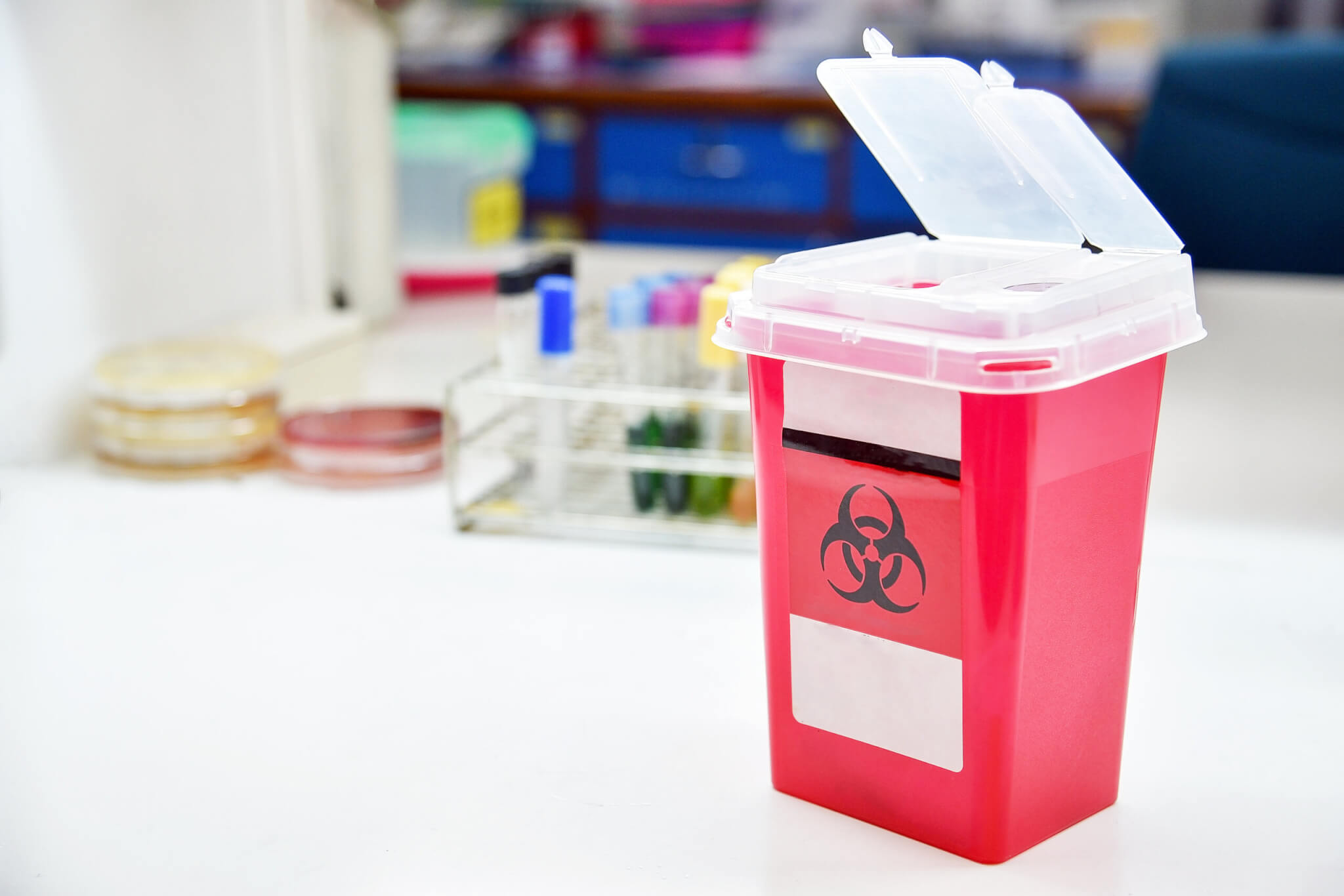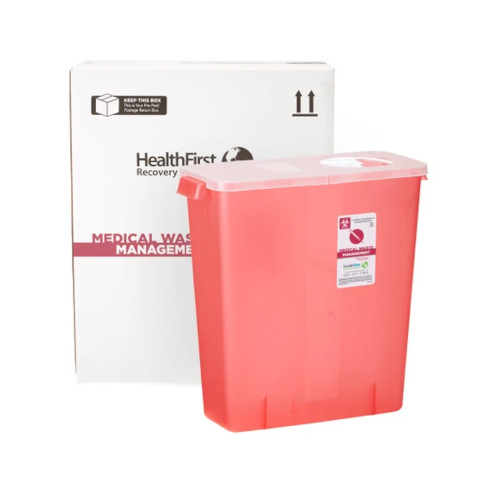Efficient Medical Waste Disposal Services: Guarding Your Center's Health
Efficient Medical Waste Disposal Services: Guarding Your Center's Health
Blog Article
Navigating Medical Waste Disposal: Important Solutions for Health Care Facilities
Health care facilities, whether huge health centers or little clinics, are entrusted with the obligation of handling, dealing with, and disposing of a vast array of clinical waste streams. Understanding the vital solutions that support medical waste disposal is not simply a matter of compliance yet also an essential part in protecting public wellness and environmental wellness.
Regulatory Conformity Support
For health care centers, guaranteeing governing conformity support is important to maintain appropriate handling and disposal of clinical waste. Adhering to guidelines stated by organizations such as the Epa (EPA) and the Occupational Security and Health Management (OSHA) is vital to stop environmental contamination, safeguard public health, and stay clear of potential lawful effects. Regulatory compliance assistance supplies healthcare centers with assistance on exactly how to properly segregate, store, transport, and take care of various kinds of medical waste in accordance with regional, state, and federal policies. This support includes help in producing and carrying out thorough waste monitoring strategies, performing normal team training sessions, and doing audits to make certain continuous conformity. By partnering with regulative compliance specialists, health care centers can remain up-to-date on advancing policies, reduce dangers connected with incorrect waste disposal, and inevitably add to a safer and much more sustainable environment for all.
Waste Segregation Assistance

Medical care facilities need to give clear standards and training to personnel on exactly how to segregate waste efficiently. This consists of separating basic waste from unsafe products such as sharps, infectious waste, pharmaceuticals, and chemical waste. Color-coded bins, tags, and signs are frequently utilized to aid in waste segregation techniques. Routine audits and tracking of waste partition processes are important to recognize any problems and make required enhancements.
Collection and Transport Providers

Proper collection and transportation solutions are important components of the medical garbage disposal procedure in health care centers. These services make sure that dangerous products are managed safely and in compliance with guidelines to protect both the setting and public health and wellness. Health care facilities depend on specialized waste management business to supply reliable collection and transportation services customized to their demands.
Clinical waste collection includes setting apart various kinds of waste at the point of generation, using color-coded bags or bins to identify in between basic, harmful, pharmaceutical, and other waste streams. Educated personnel need to perform this job to prevent contamination and make certain correct disposal. When gathered, the waste is carried in dedicated lorries furnished to take care of unsafe products safely. These lorries abide by strict security standards and follow assigned paths to accredited therapy facilities for disposal via approaches such as sterilization, incineration, or landfilling.
Treatment and Disposal Solutions
In the realm of clinical garbage disposal for medical care facilities, after the vital stage of collection and transportation services, the focus moves towards carrying out effective therapy and disposal remedies. Therapy options typically include processes such as autoclaving, which utilizes heavy steam under pressure to sanitize the waste. This technique is generally made use of for infectious waste that needs to be made non-hazardous prior to disposal. One more common treatment approach is incineration, where waste undergoes high temperature levels in regulated settings to decrease its quantity and get rid of pathogens.
Disposal services include the last action in the clinical waste management procedure. Recycling and source recuperation are additionally gaining grip as sustainable disposal choices for specific kinds of medical waste products.
Efficient treatment and disposal options are paramount in making sure conformity with laws and protecting public health and wellness and the atmosphere. Health care centers have to carefully evaluate and select suitable methods that line up with their waste administration objectives and sustainability efforts.
Personnel Training and Education And Learning

To efficiently manage medical garbage disposal in medical care centers, detailed team training and education and learning play a vital duty in ensuring adherence to regulative requirements and maintaining a safe environment. Correct training equips staff with the knowledge and skills needed to handle various types of clinical waste, segregate them correctly, and package them securely for disposal. By informing staff check out this site members on the risks connected with improper handling of medical waste, facilities can decrease the probability of mishaps, contamination, and governing offenses.

Verdict
Finally, healthcare facilities depend on necessary clinical garbage disposal solutions to guarantee regulative conformity, proper waste segregation, risk-free collection and transport, reliable therapy and disposal, along with team training and education. These services play an important duty in keeping the wellness and safety and security of both medical care employees and the public, highlighting the significance of appropriate administration of clinical waste in health care settings.
For health care centers, ensuring regulatory compliance support is important to maintain proper handling and disposal of clinical waste. Waste partition includes categorizing different kinds of clinical waste to make sure proper handling, therapy, and disposal. This includes separating basic waste from unsafe materials such as sharps, infectious waste, pharmaceuticals, and chemical waste.Medical waste collection entails setting apart various kinds of waste at the factor of generation, utilizing color-coded best site bags or containers to identify in between general, harmful, pharmaceutical, and various other waste streams.In the world of clinical waste disposal for health care facilities, after the vital phase of collection and transport services, the focus moves in the direction of carrying out effective therapy and disposal options.
Report this page